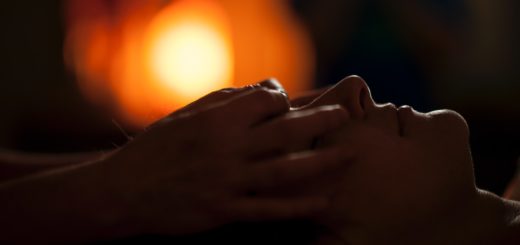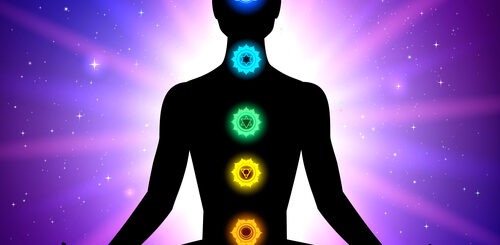Energy Alchemy: Transforming Lives with Reiki Healing

Before diving in, please note: This post is for informational purposes only. If you’d like to know more about how we approach topics, feel free to check out our friendly Disclaimer Page.
Hey there, amazing readers! 🖐️ Just a quick note: yes, we know there are a lot of ads here. Trust us, we get it—it’s not the prettiest look, but they help us keep this blog alive and kicking. Those pesky little ads cover the costs of all the behind-the-scenes magic, from hosting and tech stuff to creating content we hope you’ll love.
We’re committed to delivering quality posts, and your support (even just sticking around despite the ads) means everything to us. So, bear with us, and thanks for helping us keep the good vibes rolling. Now, on to the fun stuff! 😉
TRANSLATE BUTTON AT THE END OF THE ARTICLE
Energy Alchemy: Transforming Lives with Reiki Healing
Overview
Reiki healing is a powerful and ancient Japanese technique that aims to harness the natural energy within and around us to promote healing and well-being.
It is a form of energy healing that involves the gentle laying of hands on or near the body, allowing the practitioner to transfer universal life force energy to the recipient.
This energy helps to activate the body’s natural healing abilities, bringing balance and harmony to the physical, emotional, and spiritual aspects of a person’s life.
In this article, we will delve into the world of Reiki healing, exploring its principles, benefits, scientific evidence, and how to find a reputable practitioner.
What is Reiki Healing and How Does it Work?
Reiki healing is based on the belief that there is a universal life force energy that flows through all living things.
This energy, also known as ki or chi, nourishes and sustains our physical, emotional, and spiritual well-being.
When the flow of this energy is disrupted or blocked, it can lead to physical or emotional imbalances and illness.
Reiki healing works by clearing and balancing the energy centers, or chakras, in the body, allowing the energy to flow freely and restore harmony.
The Origins and Principles of Reiki Healing
Reiki healing was developed in the early 20th century by Mikao Usui, a Japanese Buddhist monk.
Usui was searching for a way to heal others and achieve spiritual enlightenment.
Through his studies of ancient texts and his own spiritual practices, he discovered a method of channeling and transmitting healing energy.
Usui then passed on his teachings and attuned others to this healing practice, creating a lineage of Reiki practitioners.
The principles of Reiki healing are based on five simple but powerful affirmations:
Just for today, I will not be angry.
Just for today, I will not worry.
Just for today, I will be grateful.
Just for today, I will do my work honestly.
Just for today, I will be kind to every living thing.
Understanding the Energy Channels and Chakras
In Reiki healing, it is believed that the body has seven major energy centers, known as chakras.
These chakras are located along the spine, from the base to the crown of the head.
Each chakra is associated with different physical and emotional aspects of our being.
When these chakras are balanced and open, the energy flows freely throughout the body, promoting health and well-being.
However, if a chakra is blocked or imbalanced, it can lead to physical or emotional symptoms.
The role of a Reiki practitioner is to assess the energy flow in the client’s body and identify any imbalances or blockages.
During a Reiki session, the practitioner will use their hands to direct the healing energy to the client’s body, focusing on the areas that need attention.
By doing so, they help to clear and balance the chakras, allowing the energy to flow freely once again.
The Role of Reiki Practitioners in Healing Sessions
Reiki practitioners play a crucial role in facilitating the healing process for their clients.
They act as conduits for the universal life force energy, channeling it through their hands to the recipient.
They are trained to sense the energy flow in the body and direct it to where it is most needed.
During a Reiki session, the practitioner will begin by creating a calm and relaxing environment.
The client will usually lie down fully clothed on a treatment table, while the practitioner places their hands lightly on or near the body in a series of hand positions.
The practitioner may also use specific hand techniques, such as sweeping or beaming, to clear and balance the energy.
Benefits of Reiki Healing for Physical and Emotional Well-being
Reiki healing offers a wide range of benefits for both physical and emotional well-being.
Some of the key benefits include:
Stress reduction: Reiki can help to calm the mind and relax the body, reducing stress and promoting a sense of calm and well-being.
Pain relief: Reiki has been shown to alleviate pain, both acute and chronic, by promoting the body’s natural healing response and reducing inflammation.
Emotional healing: Reiki can help to release emotional blockages and trauma, promoting emotional healing and balance.
Improved sleep: Many individuals report better sleep quality and a deeper sense of relaxation after receiving Reiki healing.
Enhanced immune function: Reiki stimulates the body’s immune system, helping to strengthen the body’s natural defenses against illness and disease.
Reiki Healing: A Complementary Therapy for Various Conditions
Reiki healing is often used as a complementary therapy alongside conventional medical treatments.
It can be beneficial for a wide range of conditions, including:
Chronic pain: Reiki can provide relief from chronic pain conditions such as fibromyalgia, arthritis, and migraines.
Mental health: Reiki can help in managing symptoms of anxiety, depression, and post-traumatic stress disorder (PTSD).
Cancer care: Many cancer patients find Reiki helpful in managing the side effects of treatment, reducing anxiety, and promoting relaxation.
Pre and post-operative care: Reiki can support the body’s healing process before and after surgery, reducing pain and promoting recovery.
Digestive disorders: Reiki can help to alleviate symptoms of digestive disorders, such as irritable bowel syndrome (IBS) and acid reflux.
Exploring the Scientific Evidence behind Reiki Healing
While Reiki healing has been practiced for centuries, its scientific evidence is still emerging.
Some studies have shown promising results, indicating that Reiki can have a positive impact on various health conditions.
However, more research is needed to fully understand its mechanisms and effectiveness.
One study published in the Journal of Alternative and Complementary Medicine found that Reiki significantly reduced pain and anxiety in patients undergoing knee replacement surgery.
Another study published in the Journal of Evidence-Based Complementary and Alternative Medicine reported that Reiki helped to reduce symptoms of depression and anxiety in cancer patients.
These studies suggest that Reiki may have potential as a complementary therapy, but further research is needed to confirm these findings.
How to Find a Reputable Reiki Practitioner near You
Finding a reputable Reiki practitioner is crucial to ensuring a positive and effective healing experience.
Here are some tips to help you find a qualified practitioner:
Seek recommendations: Ask friends, family, or healthcare professionals for recommendations of practitioners they trust.
Check credentials: Look for practitioners who have completed a recognized Reiki training program and hold a certification.
Interview potential practitioners: Schedule a consultation with potential practitioners to ask questions about their training, experience, and approach to Reiki healing.
Trust your intuition: It’s important to feel comfortable and safe with the practitioner you choose.
Trust your instincts when making your decision.
What to Expect in a Reiki Healing Session
During a Reiki healing session, you can expect a calm and relaxing environment.
The practitioner will usually start by discussing your health concerns and goals for the session.
You will then be asked to lie down fully clothed on a treatment table, while the practitioner places their hands lightly on or near your body in a series of hand positions.
The session typically lasts between 60 to 90 minutes, but the duration can vary depending on individual needs.
You may feel various sensations during the session, such as warmth, tingling, or a sense of deep relaxation.
Some people also experience emotional releases or insights.
It is important to communicate with the practitioner throughout the session if you have any concerns or discomfort.
After the session, it is recommended to drink plenty of water, rest, and allow yourself time to integrate the healing energy.
Frequently Asked Questions about Reiki Healing
Is Reiki healing safe?
Yes, Reiki healing is generally considered safe and non-invasive.It does not involve the use of medications or invasive procedures.
Can Reiki healing be done remotely?
Yes, Reiki can be sent remotely, allowing the practitioner to connect with the recipient energetically, regardless of their physical location.Remote healing sessions can be just as effective as in-person sessions.
Can anyone learn Reiki?
Yes, anyone can learn Reiki.There are different levels of Reiki training, starting from Level 1, which focuses on self-healing, to Master/Teacher Level, which allows individuals to attune others to Reiki.
How many Reiki sessions are needed to see results?
The number of sessions needed can vary depending on the individual and their specific needs.Some people may experience immediate benefits after one session, while others may require multiple sessions to see significant changes.
Harnessing the Power of Reiki for Personal Transformation
Reiki healing offers a powerful tool for personal transformation and self-growth.
By harnessing the natural energy within and around us, Reiki can help to restore balance and harmony on all levels – physical, emotional, and spiritual.
Whether you are seeking relief from physical pain, emotional healing, or a deeper connection to your inner self, Reiki can be a valuable tool on your journey towards well-being and personal transformation.
Conclusion
Reiki healing is an ancient and powerful technique that can transform lives by tapping into the universal life force energy within and around us.
By clearing and balancing the energy channels in the body, Reiki promotes physical and emotional well-being.
While scientific evidence for Reiki is still emerging, many individuals have reported significant benefits from this complementary therapy.
To find a reputable Reiki practitioner, seek recommendations, check credentials, and trust your intuition.
Whether you are seeking relief from pain, emotional healing, or personal transformation, Reiki can be a valuable tool on your path to wellness.

The Enlightenment Journey is a remarkable collection of writings authored by a distinguished group of experts in the fields of spirituality, new age, and esoteric knowledge.
This anthology features a diverse assembly of well-experienced authors who bring their profound insights and credible perspectives to the forefront.
Each contributor possesses a wealth of knowledge and wisdom, making them authorities in their respective domains.
Together, they offer readers a transformative journey into the realms of spiritual growth, self-discovery, and esoteric enlightenment.
The Enlightenment Journey is a testament to the collective expertise of these luminaries, providing readers with a rich tapestry of ideas and information to illuminate their spiritual path.
Our Diverse Expertise 🌟
While our primary focus is on spirituality and esotericism, we are equally passionate about exploring a wide range of other topics and niches 🌍📚. Our experienced team is dedicated to delivering high-quality, informative content across various subjects ✨.
To ensure we provide the most accurate and valuable insights, we collaborate with trusted experts in their respective domains 🧑🏫👩🏫. This allows us to offer well-rounded perspectives and knowledge to our readers.
Our blog originally focused on spirituality and metaphysics, but we’ve since expanded to cover a wide range of niches. Don’t worry—we continue to publish a lot of articles on spirituality! Frequently visit our blog to explore our diverse content and stay tuned for more insightful reads.





